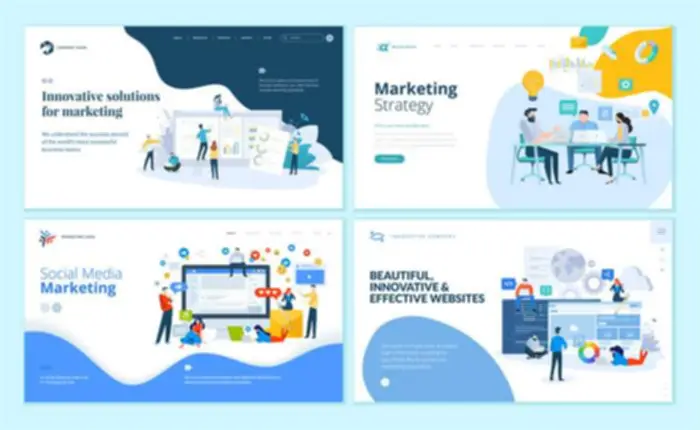Jenkins, being open supply software, has a large developer neighborhood backing it. There is a sturdy community replete with chats, dialogue forums, and even meetups to help members of the community trash out issues with this system. There is also an unlimited online repository of data or resources about Jenkins. Himanshu Sheth is a seasoned technologist and blogger with greater than 15+ years of various working expertise.
Jenkins is made by builders for developers as is the nature of most open supply code. Jenkins requires in depth data of the system to be able to get essentially the most out of it. Even simply understanding when to search for a plugin is one thing that might not be instantly apparent to somebody with out expertise.
It serves as a priceless useful resource for troubleshooting issues and maximizing the software’s capabilities. Integration with different instruments is essential when contemplating software program solutions for businesses. The integration allows for seamless data transfer and collaboration between different instruments, eliminating the necessity for guide knowledge entry and decreasing the chances of errors. It allows companies to leverage the total potential of their existing teamcity server toolset by making a unified ecosystem.
It is based on Java and can automate duties associated to construct, test, deploy, and delivery of software program. Jenkins is on the market for use on Windows, macOS, and different Unix variations such as Purple Hat, Ubuntu, OpenSUSE, and extra. Alongside with set up using native installation packages, it can be installed as a Docker or as a standalone on any machine that has JRE (Java Runtime Environment) put in. You can get a quicker and stable construct when you combine it with steady supply. The setup and configuration of distributed builds are made simpler by TeamCity’s native help for distributed run.
The benefits of TeamCity embrace its simple setup and configuration, which permits builders to quickly get began with the CI/CD pipeline. TeamCity additionally supports parallel and distributed builds, enabling sooner execution of duties. Although Jenkins doesn’t have plenty of built-in features, its big plugin ecosystem offers tons of features that other CI tools cannot compete with.
Pricing And Assist
Earlier Than we get into the demo, if you have https://www.globalcloudteam.com/ not put in Jenkins, please install it first. Either you’ll be able to run JenkinsFile individually, or you’ll find a way to run the pipeline code from Jenkins Internet UI also. Jenkins Pipeline is a mix of jobs to deliver software constantly utilizing Jenkins.
The free model of TeamCity – Skilled server license supplies 100 builds and three construct agents at zero price. Jenkins, an open-source automation server, remains a well-liked selection for continuous integration and steady supply (CI/CD) despite the emergence of newer tools. The platform receives common updates and improvements, ensuring its relevance and effectiveness. With its intensive plugin ecosystem and flexibility, Jenkins continues to meet the evolving wants of organizations of all sizes. Initially created as a construct automation software for Java purposes, Jenkins has developed tremendously and is presently the de facto standard for steady integration servers. Apart from the reality that it is open-source (free), it presents more than 1400 (yes, 1400) plugins for simple integration with other platforms and instruments (check out the top 10 Jenkins plugins).
Group Support And Documentation
- As a outcome, setting issues up for small groups and open source projects is uncomplicated.
- Though TeamCity and Jenkins are each CI tools, they differ in a quantity of features.
- It also provides choices to pin, tag, and touch upon builds for organizational functions.
- Jenkins permits parallelism by way of parallel phases, and you only need to allow the Parallel Take A Look At Executor plug-in to start the process.
Whereas each tools cowl much of the identical ground, they do so in numerous methods. This is as a result of Jenkins is an open supply project while TeamCity is a proprietary providing from JetBrains. In our comparability, we’ll show you the way they stack up and focus on some of their similarities, variations and what makes every a good fit for different environments.
It helps you establish and remediate all of the risks and threats that are in your builds. The most elementary distinction between Jenkins vs TeamCity is that Jenkins is an open-source steady integration software and TeamCity is a commercial tool. This obviously implies that Jenkins project is supported by builders throughout the globe whereas TeamCity is maintained by its mother or father company, JetBrains.

When it comes to choosing between Jenkins and Jetbrains’ TeamCity, the selection comes down to private desire. If you’re a fan of open supply options and like to home-brew your plugins and extensions, there isn’t a doubt that Jenkins might be your most appropriate option. Nonetheless, if what you’re in search of is ease-of-use and a elegant proprietary software experience, TeamCity is the right CI/CD tool for you.
In DevOps, Steady Integration and Continuous Supply (CI/CD) is achieved by way of Jenkins Pipeline. Using Jenkins Pipeline for CD helps to deliver the software program with faster and frequent releases. Has ready-made integrations for traditional reports such as JUnit check results.
By automating build and take a look at Digital Twin Technology processes, builders can concentrate on extra crucial duties, resulting in improved productivity and effectivity. This comparison of Jenkins vs TeamCity is meant to help you select the proper CI software for your wants. This selection is not simple, neither is it simple, as both solutions have unique options and advantages. If after reading this publish you’re nonetheless unsure, go forward and provides both options a try (you can use TeamCity’s free version). As nice as this comparison may be, nothing beats creating a number of builds on these platforms and experiencing the benefits (and weaknesses) by yourself.

Jenkins is a fork from Hudson, the original CI device developed by Kohsuke Kawaguchi (who worked at Solar at the time) to manage continuous integration of Java code. Most organizations right now understand that there’s a clear need for DevOps pros and tools to bring order to the chaos of software program development and deployment. This order is usually outlined under the ideas of CI/CD, leveraging automation alongside reliability and collaboration in the growth course of and its end result. The TeamCity server is a main component, however the browser-hosted interface serves as the first way to administer TeamCity customers, initiatives, brokers, and build configuration. Consumer interface/accessibility is a big promoting level of TeamCity.





